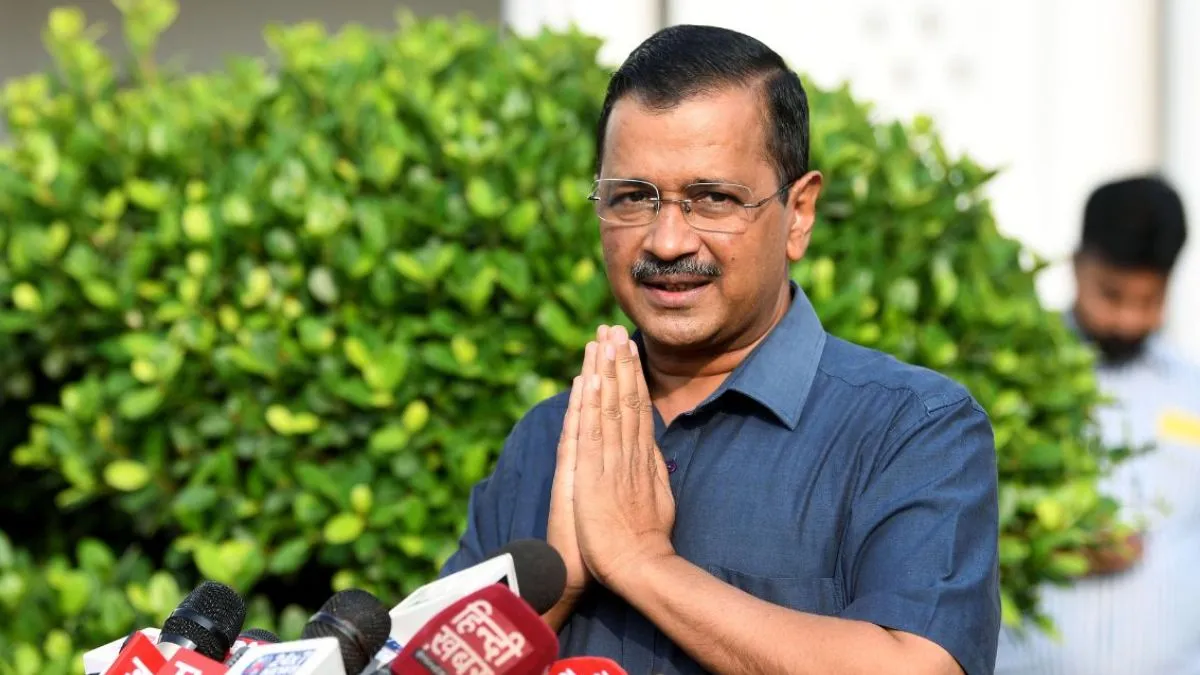- By Aashish Vashistha
- Fri, 13 Sep 2024 11:12 AM (IST)
- Source:JND
The Supreme Court on Friday (September 13) granted bail to Delhi Chief Minister Arvind Kejriwal, who had been jailed for the last six months in the excise policy case. The apex court stated that prolonged incarceration amounts to unjust deprivation of liberty.
The Aam Aadmi Party leader, who had spent nearly six months in prison without a trial, can now leave jail after securing bail in a case filed by the Enforcement Directorate. Two months ago, Kejriwal was granted a temporary bail for a few days to campaign for the Lok Sabha elections.
Supreme Court grants bail to Delhi Chief Minister and AAP national convener Arvind Kejriwal in a corruption case registered by CBI in the alleged excise policy scam.
— ANI (@ANI) September 13, 2024
Supreme Court says prolonged incarceration amounts to unjust deprivation of liberty. pic.twitter.com/6LoZkISNO4
In a plea, Kejriwal had sought bail and questioned his arrest by the Central Bureau of Investigation (CBI) in connection with the excise policy case. The Supreme Court, while granting bail to Kejriwal stated that the AAP leader satisfies the triple condition for the grant of bail and we order accordingly.
The AAP supremo was first arrested by the Enforcement Directorate (ED) under the Prevention of Money Laundering Act (PMLA) on March 21. Later, the CBI arrested him on June 26 this year.
In a video shared by news agency ANI, AAP leaders Manish Sisodia and Delhi Minister Atishi can be seen hugging each other following the verdict.
#WATCH | Delhi: Visuals from the residence of AAP leader Manish Sisodia as Delhi Minister Atishi and he rejoiced the moment Supreme Court granted bail to Delhi CM Arvind Kejriwal in a corruption case registered by CBI in the alleged excise policy scam.
— ANI (@ANI) September 13, 2024
(Video: AAP) pic.twitter.com/hq3iBlh0v4
While granting bail to Kejriwal, the top court listed some conditions for the Delhi CM to follow, including those set when he got relief in the ED case. These conditions include:
- The Supreme Court bench comprising Justice Surya Kant and Justice Ujjal Bhuyan, directed that Kejriwal be released on bail subject to bail bonds of Rs 10 lakh.
- The top court also directed Kejriwal to not make any public comments about the case and asked him to be present for all hearings before trial court unless exempted.
- The court granted bail to Kejriwal on a condition that he can't enter the Chief Minister's office or the Delhi secretariat while out on bail. He cannot sign official files.
